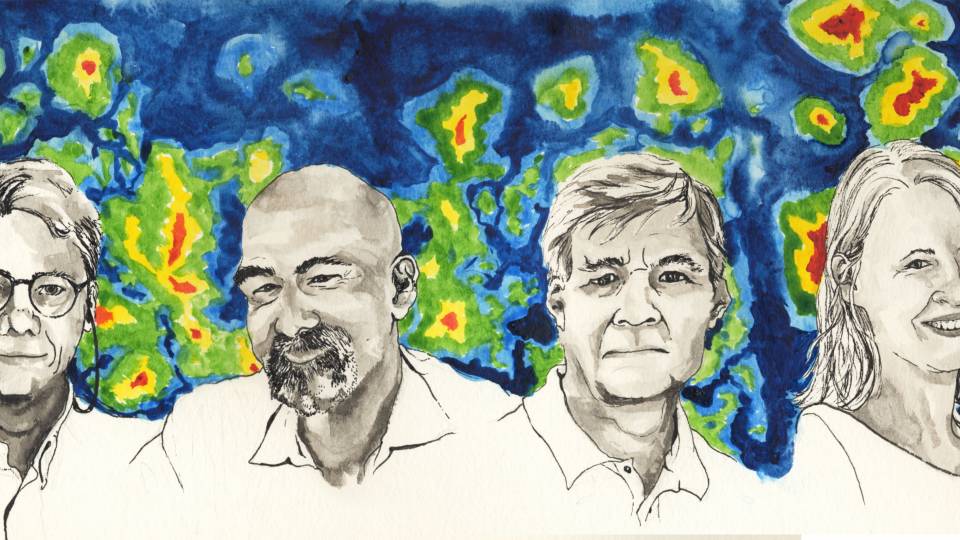Seven Princeton University researchers were named 2013 Fellows of the American Physical Society (APS), one of the world's top organizations of physicists. Fellows will be honored during the 2014 APS annual meeting. The fellows from Princeton and their citations from APS are listed below.
David Gates, a principal research physicist for the advanced projects division of the Princeton Plasma Physics Laboratory (PPPL), for innovation and leadership in the understanding and control of limiting magnetohydrodynamics phenomena in toroidal plasmas.
M. Zahid Hasan, professor of physics, for the experimental discovery of three-dimensional topological insulators — a new kind of quantum matter.
James Olsen, professor of physics, for seminal contributions to the observation of direct CP violation in the B meson systems by the BaBar experiment at SLAC, and for his leading role in the first CMS measurement of Higgs decays to b quarks.
Lyman Page, the Henry De Wolf Smyth Professor of Physics and department chair, for his leadership in precision measurements of the cosmic microwave background, culminating in the Wilkinson Microwave Anisotropy Probe experiment, which has enabled precise determinations of the fundamental cosmological parameters, including the geometry, age and composition of the universe.
Charles Skinner, a principal research physicist at PPPL, for innovations in magnetic-fusion issues, including tokamak dust diagnostics and tritium management, and seminal contributions to X-ray lasers and applications, non-linear optics, plasma spectroscopy and plasma-lithium interactions.
David Spergel, the Charles A. Young Professor of Astronomy on the Class of 1897 Foundation, and chair of the astrophysical sciences department, for his pioneering contributions to the understanding of our universe. His work with the WMAP satellite led to discovery of the geometry, age and total content of the universe.
James Stone, professor of astrophysical sciences and applied and computational mathematics, for his leading role in the development of tools for computational magnetohydrodynamics and in advancing our understanding of the physics of accretion disks, the dynamics of disk driven winds, and the dynamics of molecular clouds.
